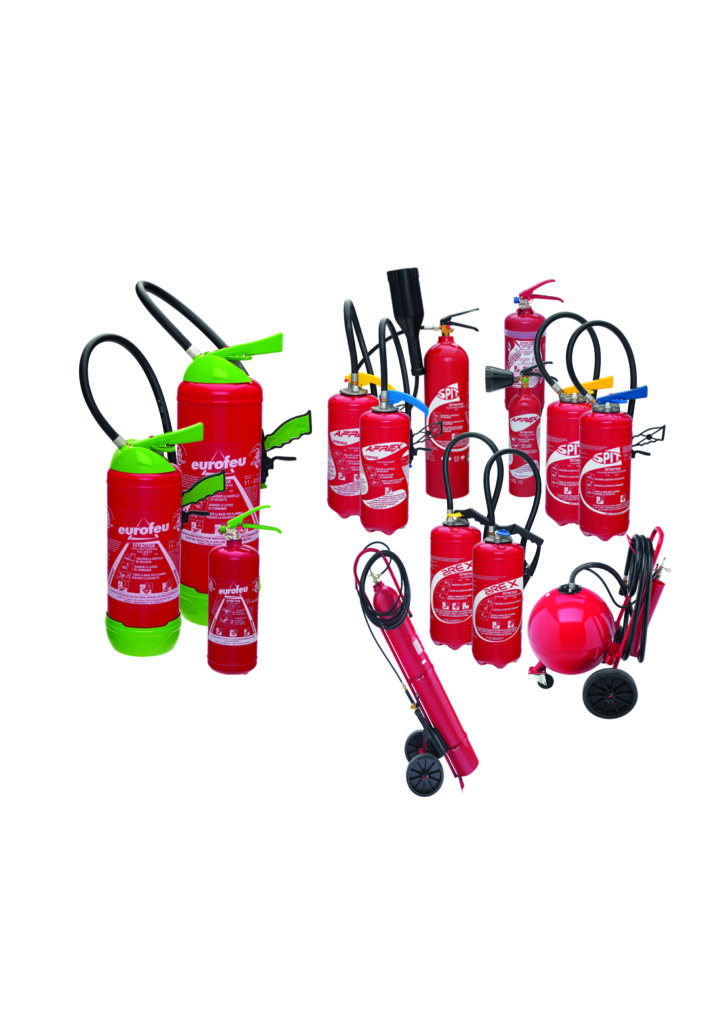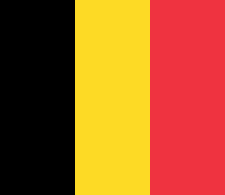Which extinguisher for which use?
Choosing the right type of extinguisher for each application depends on the type of fire likely to occur in the specific environment. At Eurofeu, we offer a complete range of extinguishers suitable for various types of fire.
Which extinguisher for which use?
A fire extinguisher is a pressurized first-response device designed to spray a suitable extinguishing agent onto an identified class of fire. To determine the right extinguisher, we first need to identify the fire to be tackled.
1. Identify the type of fire to fight
The first step is to understand the types of fires you may encounter:
- Class A: Fires involving solid materials such as wood, paper and textiles.
- Class B: Fires involving flammable liquids such as petrol, oil and paint.
- Class C: Fires involving flammable gases such as propane and butane.
- Class D: Combustible metal fires such as magnesium and sodium.
- Class F: Cooking oil and grease fires.
2. Which type of extinguisher for which type of fire?
At Eurofeu, we offer several types of extinguishers:
Pure water fire extinguisher :
- Use: Ideal for Class A fires.
- Advantages: Efficient and easy to use.
- Disadvantages : Do not use on electrical fires or flammable liquids.
Water spray extinguisher with additive (or foam extinguisher) :
- Use: Effective on Class A and B fires.
- Advantages: Effective on flammable liquids and solids. The additive contained in the extinguisher provides improved wetting power on Class A and surfactant power on Class B fires to block the oxygen supply.
- Disadvantages : Do not use on gas or electric fires.
ABC powder extinguisher :
- Application: The powder extinguisher is effective on Class A, B and C fires.
- Advantages: Versatile and effective on various types of fire.
- Disadvantages: Can cause damage and leave powder residue.
CO2 extinguisher :
- Use: Ideal for Class B and C fires, and electrical fires.
- Advantages: Leaves no residue, perfect for electronic equipment.
- Disadvantages: Less effective on Class A fires, limited discharge time.
Class F fire extinguisher :
- Use: Specialized for cooking oil and grease fires.
- Advantages: Ideal for kitchens, effectively neutralizes grease fires.
- Disadvantages : Use limited to grease fires.
3. Extinguisher capacity and size
The size of the extinguisher depends on its intended use:
- Domestic use: Portable fire extinguishers from 2 to 6 kg or liters.
- Commercial or industrial use: 6 to 12 kg or liter fire extinguishers, or even more for large spaces.
4. Maintenance and checking
At Eurofeu, we also offer maintenance services to ensure that your extinguishers remain in good working order:
- Regular maintenance: Our qualified technicians carry out regular maintenance and recharging of your extinguishers.
- Inspection and Certification: We provide comprehensive inspections and certifications to guarantee the conformity of your equipment.
The type of extinguisher to use therefore depends on the class of fire to be extinguished. It is also important to take into account the environment to be protected. For industrial environments, powder extinguishers are the most popular, while for tertiary environments (offices, stores), it's more common to install EPA extinguishers (water spray with additive). ABF extinguishers use an additive capable of fighting cooking fires, making them ideal for kitchens. CO2 extinguishers are chosen mainly to protect electrical installations (switchboards, printers).



